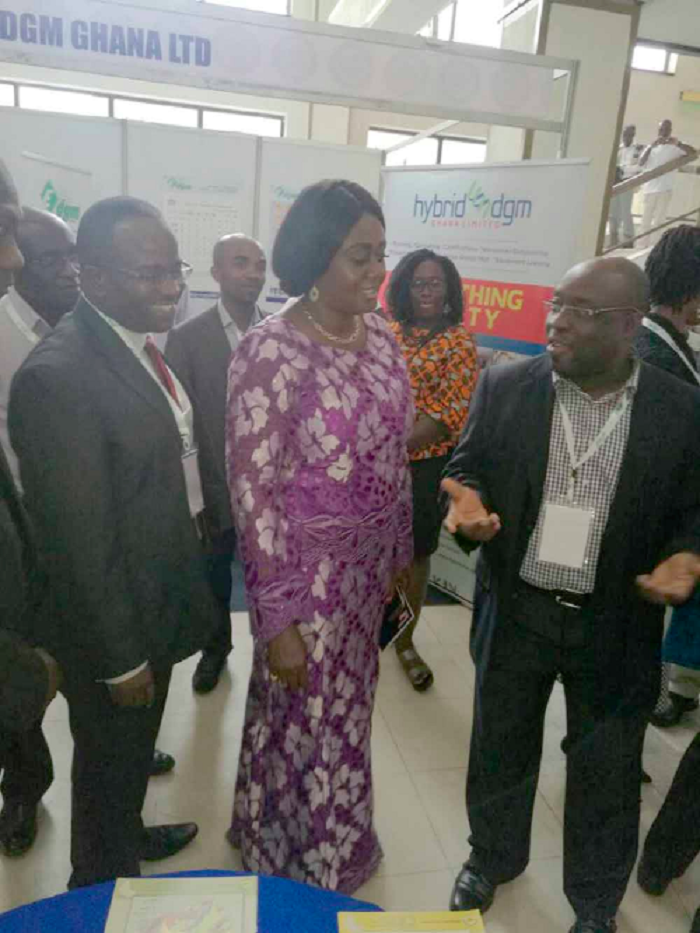
Mining companies reach 73% local content
The Mining industry procured 73 per cent of their imputs from local supplies as part of a deliberate effort to enhance the local content regulations in the country.
The aim is to attain 100 per cent local procurement of mining supplies.
The Minister for Lands and Natural Resources, Mr John Peter Amewu, said this in a speech read on his behalf by his Deputy, Mrs Barbara Oteng-Gyasi, at the Ghana Mining and Energy Summit underway in Accra.
This is contrary to the long-held perception that mining companies mostly procure their goods abroad, denying local suppliers of business to boost local economic development.
“I have been informed that with respect to performance on true local procurement in 2015, the mining industry achieved about 73 per cent of its planned local purchases per the local content regulations,” he said.
“I believe that the industry will do well to achieve 100 per cent of its planned local purchases in the coming years”, Mr Amewu added.
The local content regulations of the mining sector require mining companies to source a list of items from local vendors.
He added that the mining sector, in 2015, contributed about 14.4 per cent of government revenue and 34 per cent in terms of total merchandise exports and produced about 3.6 million ounces of gold which resulted in export revenue of about US$3.3 billion.
“Also in the same year, mining companies repatriated about 72 per cent of foreign exchange into the economy.”
“These achievements are indeed significant and government commends the contribution of mining companies in the country for achieving this success,” Mr Amewu said..
Investment in the mining sector
According to Mr Amewu, the continuous relevance of the mining sector to the economy depended largely on the inflow of investments for both fresh and brownfield exploration.
The industry was faced with difficulties, notable among them is the unstable commodity prices and the energy crisis which ebbed in 2016.
This led to the underperformance and downsizing of operations of mining companies in the country.
“With fairly stable commodity prices in the world market for gold, some resilient mining companies have started to explore opportunities to reinvest in the country,” he stressed.
“As partners in sustainable development, the government is committed to cooperating with the mining companies to come up with cost-cutting innovations and modern technology to boost investment in the sector.”
Mr Amewu assured the business community that the government would continue to support the efforts of the Ghana Chamber of Mines and the mining industry as a whole to stimulate new investment and exploration opportunities for investors, miners and financiers.
Royalties to communities
The government said it was aware that the proportion of the total mineral royalty, which went directly to the mining communities, was woefully inadequate for the stimulation of meaningful infrastructural development in the mining communities.
The recent passage of the Minerals Development Fund (MDF) Act by Parliament is expected to provide the financial resources to transform the those communities.
The ministry has initiated the necessary process to implement the MDF Act and the relevant stakeholders will be brought on board as the process commences fully. He, therefore, called on the Ghana Chamber of Mines to support the implementation of the law to realise its objectives.
Govt policy objectives
It is time to look beyond what the industry has achieved in terms of fiscal benefits to the economy. An accelerated economic development in Ghana will not be possible without the minerals and mining industries being integrated into the rest of the other sectors of the economy.
In addition to the existing policies, the government, Mr Amewu stressed, would pursue policy objectives for the mining sector to achieve the needed growth and development.
This policy objective will be implemented to project the mining sector to its desired level in terms of job creation and socio-economic growth of the people, Mr Amewu stressed.